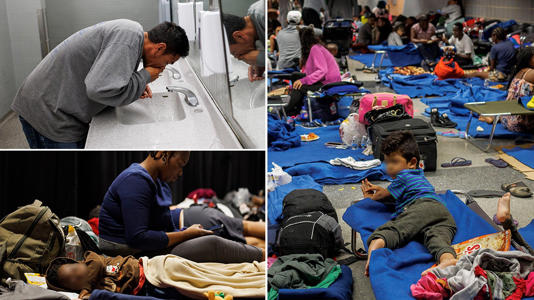Story by Lindsay Kornick
Chicago migrants are beginning to move back to Venezuela as the city runs out of resources to house and support illegal immigrants.
The Chicago Tribune reported on the account of Michael Castejon, who migrated with his wife and stepdaughter from Venezuela to find a better life. However, after several months, the family suffered from homelessness, a lack of job opportunities and no access to better education. By early November, they had requested tickets back to their home country.
“The American Dream doesn’t exist anymore,” Castejon said. “There’s nothing here for us.”
The report suggested that Castejon was not the only migrant who felt that way. As the city grows colder, many are requesting tickets to other cities or even other countries to avoid sleeping on the streets during the winter.
“How many more months of living in the streets will it take? No, no more. It’s better that I leave. At least I have my mother back home,” Castejon said.
Some migrants suggested they had been misled to believe that they could be granted asylum immediately and perhaps receive a work permit. Others acknowledged the sheer number of illegal immigrants overwhelming the city has likely depleted resources.
“We didn’t know things would be this hard,” Castejon said. “I thought the process was faster.”
City officials reported that Chicago had received more than 19,000 migrants since August 2022. In addition, over 68,000 Chicago citizens are experiencing homelessness. As the migrant crisis grew worse, local leaders have begun debating Chicago’s status as a “sanctuary city” for migrants.
“We’re spending a lot of money every single day,” 9th Ward Alderman Anthony Beale said during a Chicago City Council meeting in November. “I think up to $40 million a month, ladies and gentlemen.”

In the meantime, the city has been forced to house migrants at O’Hare Airport, police stations and even youth sports fields. Many others have been forced onto the streets despite freezing temperatures.
“We just want to be home,” Castejon said. “If we’re going to be sleeping in the streets here, we’d rather be sleeping in the streets over there.”

